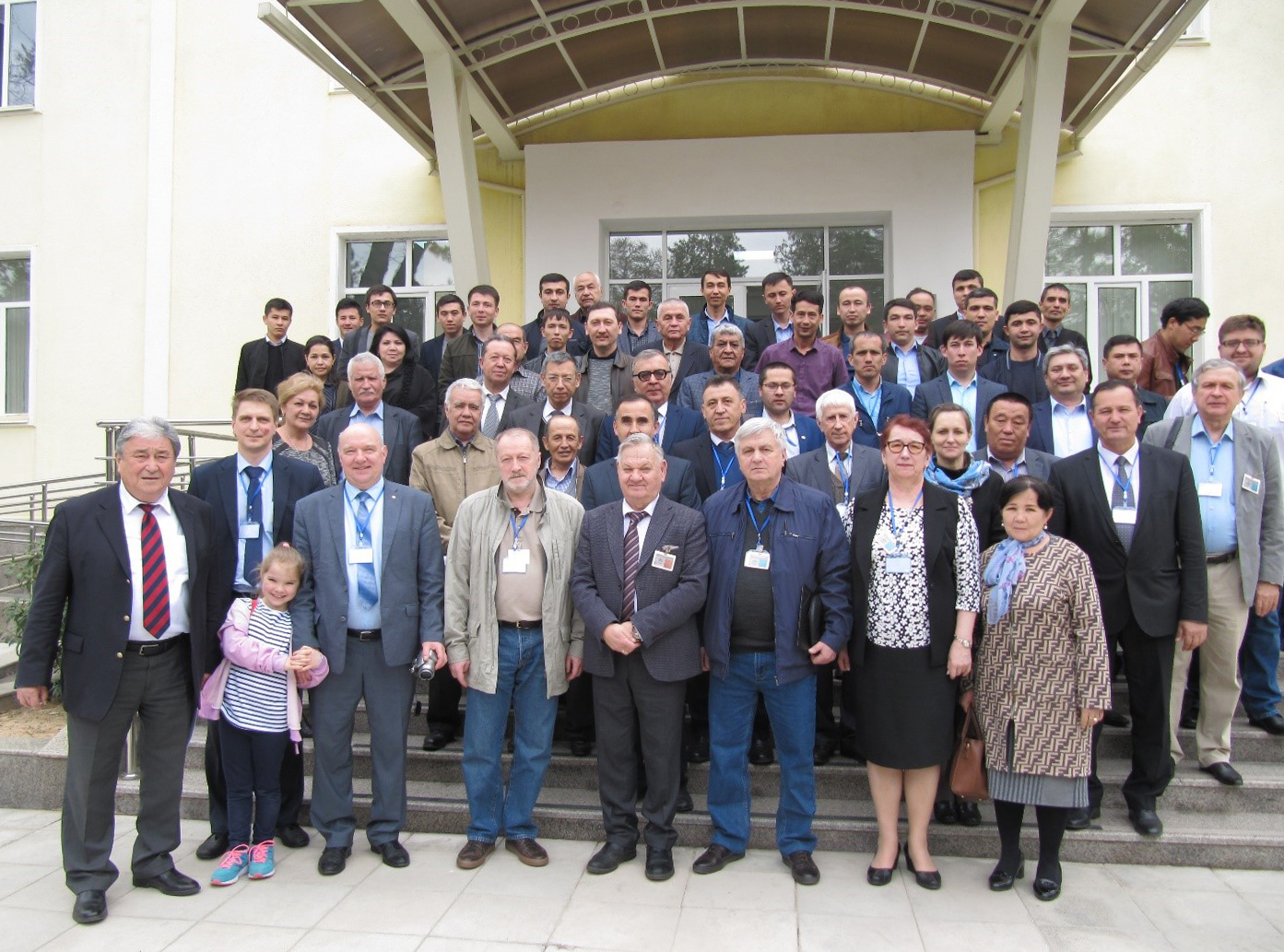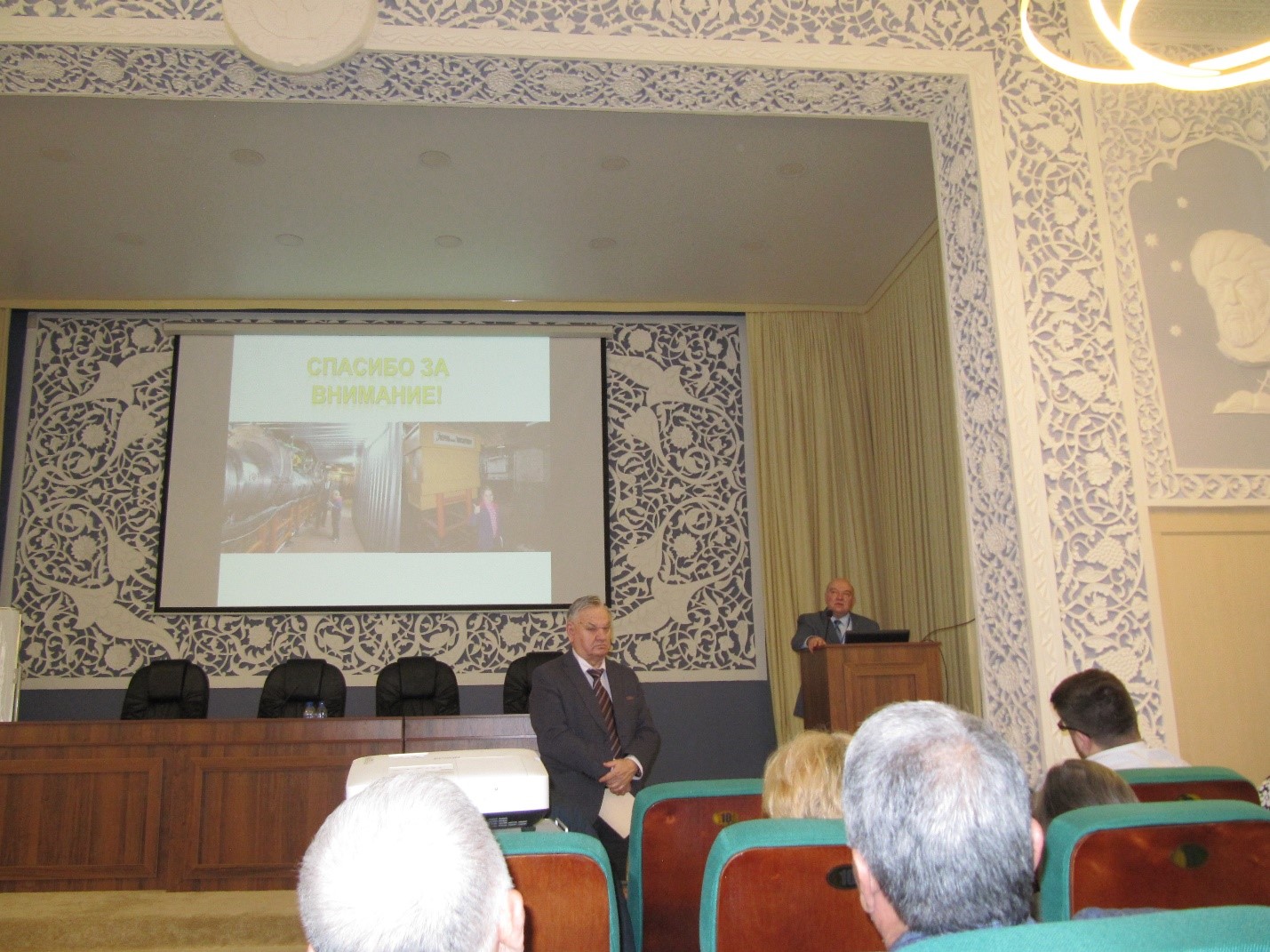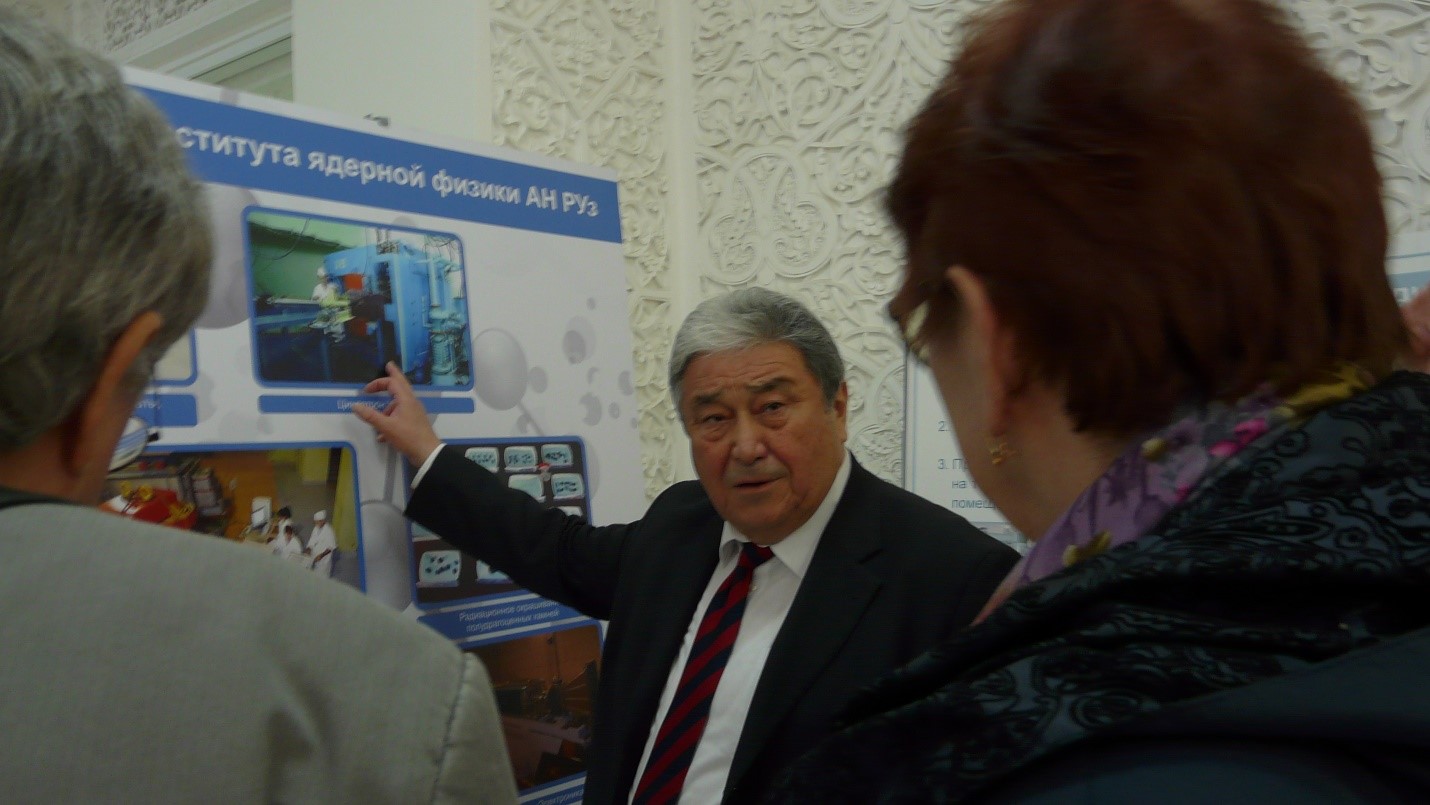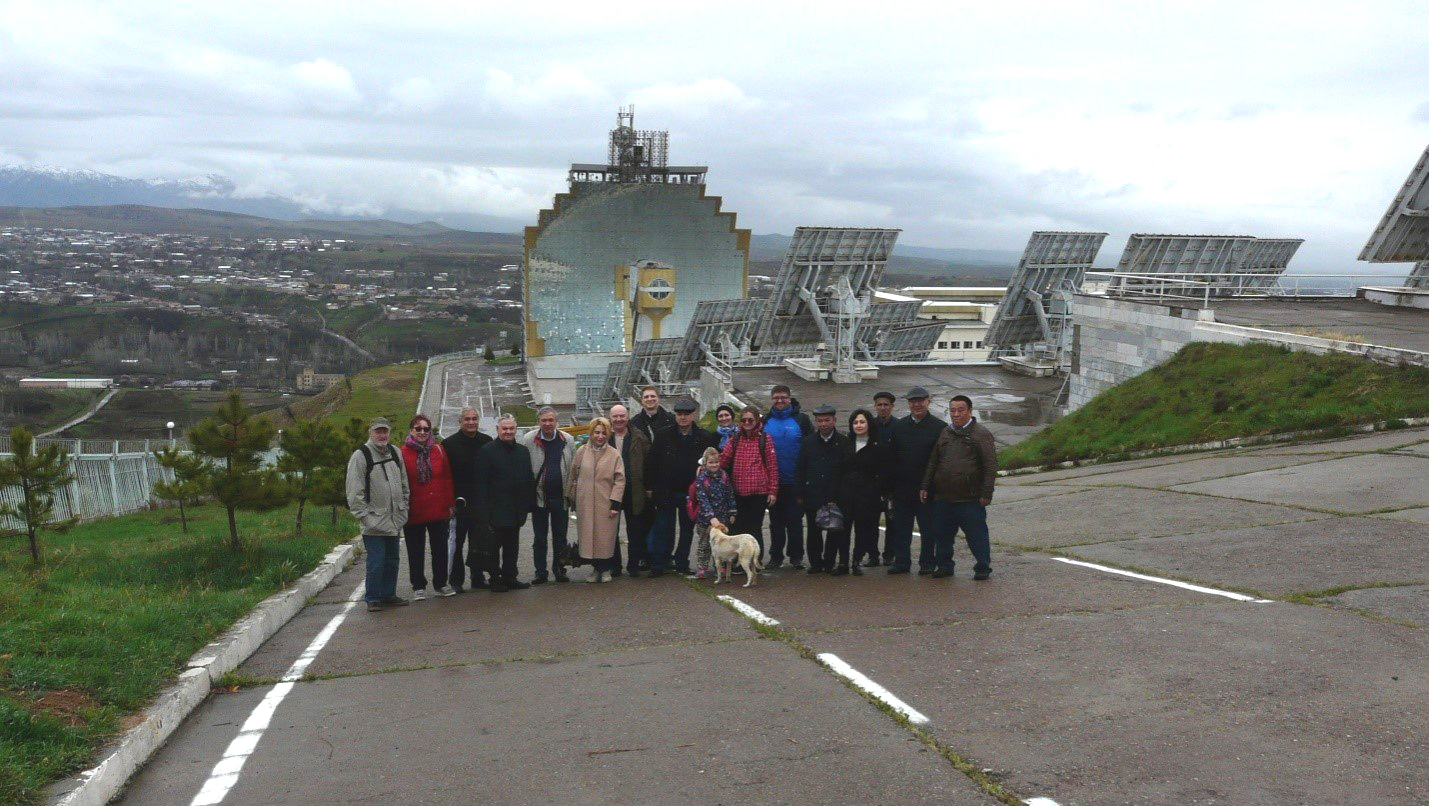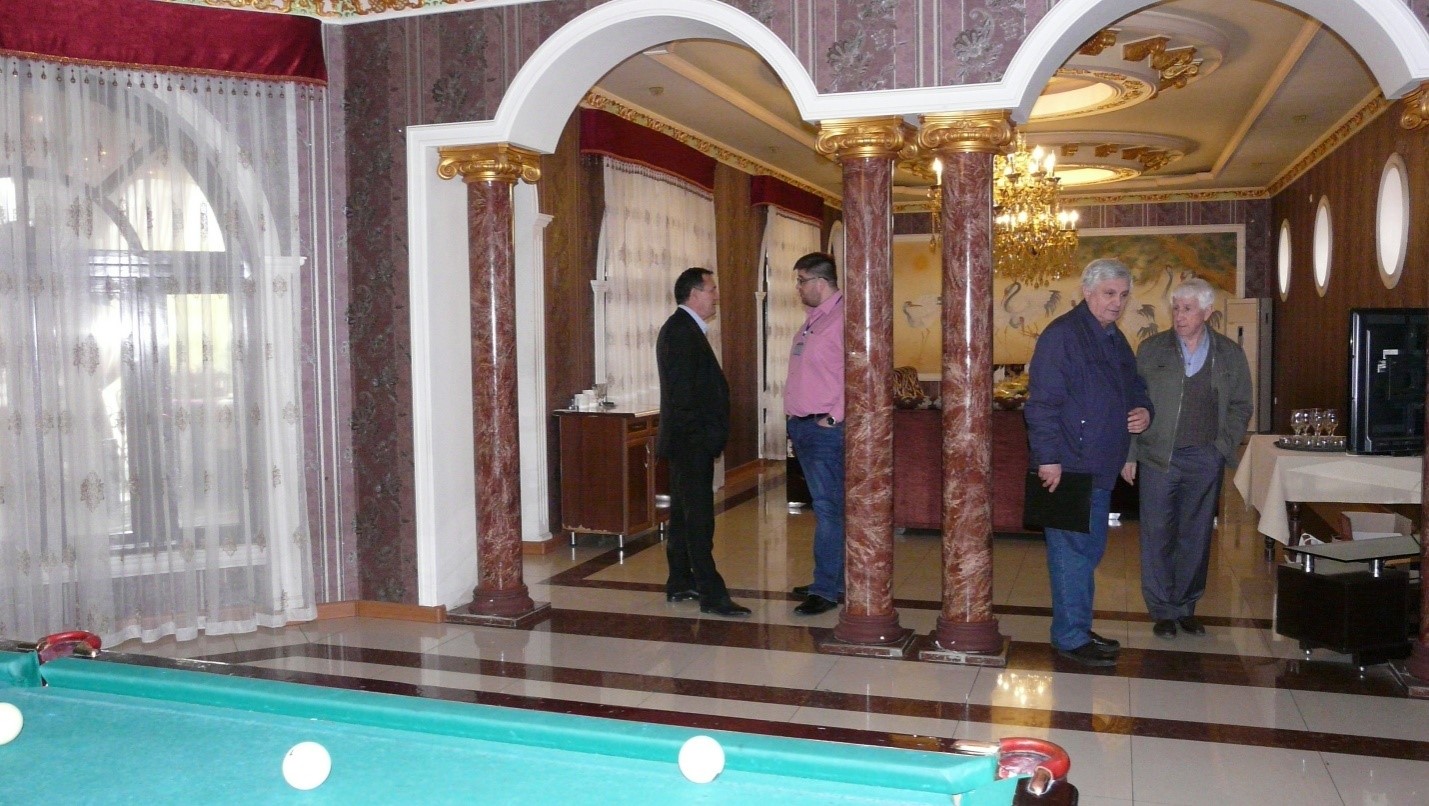About the past workshop in Tashkent
News, 04 April 2019
On 9 – 22 March 2019, the International Workshop “Subcritical nuclear systems and problems of nuclear power” was held in Tashkent , the capital city of Uzbekistan. Organizers of this workshop were the Institute of Nuclear Physics of the Academy of Sciences of the Republic of Uzbekistan and the Joint Institute for Nuclear Research.
Topics of the Workshop covered the following issues:
- Subcritical nuclear systems (ADS), present state and prospects for development;
- High-intense neutron sources for ADS;
- Problems of transmutation of actinides and recycling of radioactive wastes;
- Modelling of physical characteristics of nuclear and power systems.
The Workshop was attended by representatives such research centres as the Joint Institute for Nuclear Research, the Institute of Theoretical and Experimental Physics of the NRC “Kurchatov Institute” (Moscow), the A. Tsyb Medical Radiological Research Center – branch of FSBI NMRRC of the Ministry of Health of Russia (Obninsk), the joint-stock company “The Institute of Physical and Technical Problems” of the “Rosatom” state corporation, the Institute of Space Sciences (Bucharest-Magurele, Romania), the International Sakharov Environmental Institute of the Belarusian State University (Minsk), and, of course, cordial hosts from the Institute of Nuclear Physics of the Uzbek Academy of Sciences.
The Workshop was opened by President of the Academy of Sciences of the Republic of Uzbekistan B. S. Yuldashev and Prof. S. I. Tyutyunnikov (JINR). 16 reports by scientists from Russia, Uzbekistan, Belarus, Romania were heard. The Workshop was concluded with a round table at which the reports and plans for cooperation were discussed. The Workshop turned out to be useful not only for guests but for the hosts as well. Many joint interests and tasks were found out; participants agreed on further cooperation. The Republic of Uzbekistan restores its membership in JINR and there are no doubts that this cooperation will be mutually beneficial. The nuclear energy industry is also paid large attention. Thus, Uzbekistan plans to construct two nuclear power plants in the nearest years; that is why the theme of the Workshop was especially vital.
Participants of the Workshop considered issues of joint processing and analysis of data obtained while using bubble chambers in the transition areas of relativistic nuclear interactions. The data obtained in the past century by the wide international collaboration of the JINR Member States have been processed for more than 50 years. In particular, Uzbekistan accumulated and analyzed the rich experimental material. These data are still up-to-date, especially in the light of construction of the NICA collider as far as the theoretical description of nuclear interactions particularly in the transition area of energies has challenges.
Co-chairman of the Workshop Prof. S. I. Tyutyunnikov made the overview report on study of deep subcritical systems and their opportunities in producing energy and transmutation of radioactive wastes. A. A. Baldin reported on the new concept of the electronuclear way of producing energy using beams of light ions and its testing at the accelerating complex in JINR, as well as the programme and the current status of applied research at the accelerating complex of VBLHEP JINR. Study of neutron-physical characteristics of subcritical systems at the stand “Yalina” (Belarus) was reported on by A. I. Kievetskaya. The report by Director of the IPTP of the “Rosatom” state corporation A. A. Smirnov on devices and the equipment for nuclear research used in science and industry that are developed and produced by the IPTP stock company evoked a vivid interest.
An active interest and fruitful discussions were caused also by the report on operation of the complex of proton therapy “Prometheus” of the A. Tsyb Medical Radiological Research Center. Moreover, there were reports on optimization of the target and parameters of beams for the electronuclear way of energy production. The programme of the Workshop also included the overview of research in the fields of relativistic nuclear physics conducted in JINR; results of the study of particle birth with the use of properties of the Lobachevskian space were discussed. A detailed overview of measurements of cross sections and verification of programmes and libraries used for ADS systems’ calculations was presented. Several reports dedicated to neutron measurements and detectors gave strong grounds for discussions among participants of the event. Reports on applied research in the fields of nuclear medicine and nuclear diagnosis were made at the Workshop.
Leaders of the Republic of Uzbekistan paid much attention to the Workshop. At the end of the first day of the event, the central TV of Uzbekistan showed the news coverage about this scientific event. According to B. S. Yuldashev, development of science is proclaimed by President of Uzbekistan one of the key priorities of the country.
An excursion around the Institute of Nuclear Physics was very informative; it allowed guests to learn about current research of the Institute in detail, to visit operating facilities, including the research nuclear reactor PWR-SM, cyclotrons at which an extensive range of radionuclides is produced that are in high demand in medicine, especially highly pure isotope I123. The scientific programme included also a fascinating excursion to the Solar Furnace in the Institute of the Sun of the Uzbek Academy of Sciences (Parkent city not far from Tashkent). It worth mentioning that scientific and technological objects of Uzbekistan such as buildings of institutes and physical facilities as well make favourable impression. The rich programme of the Workshop included, in addition to reports, discussions and visits to objects of the scientific infrastructure, acquaintance with some landmarks of the splendid ancient city Tashkent.
Anton Baldin,
Head of the VBLHEP JINR Sector, Member of the organizing committee of the Workshop,
Photos by the author
